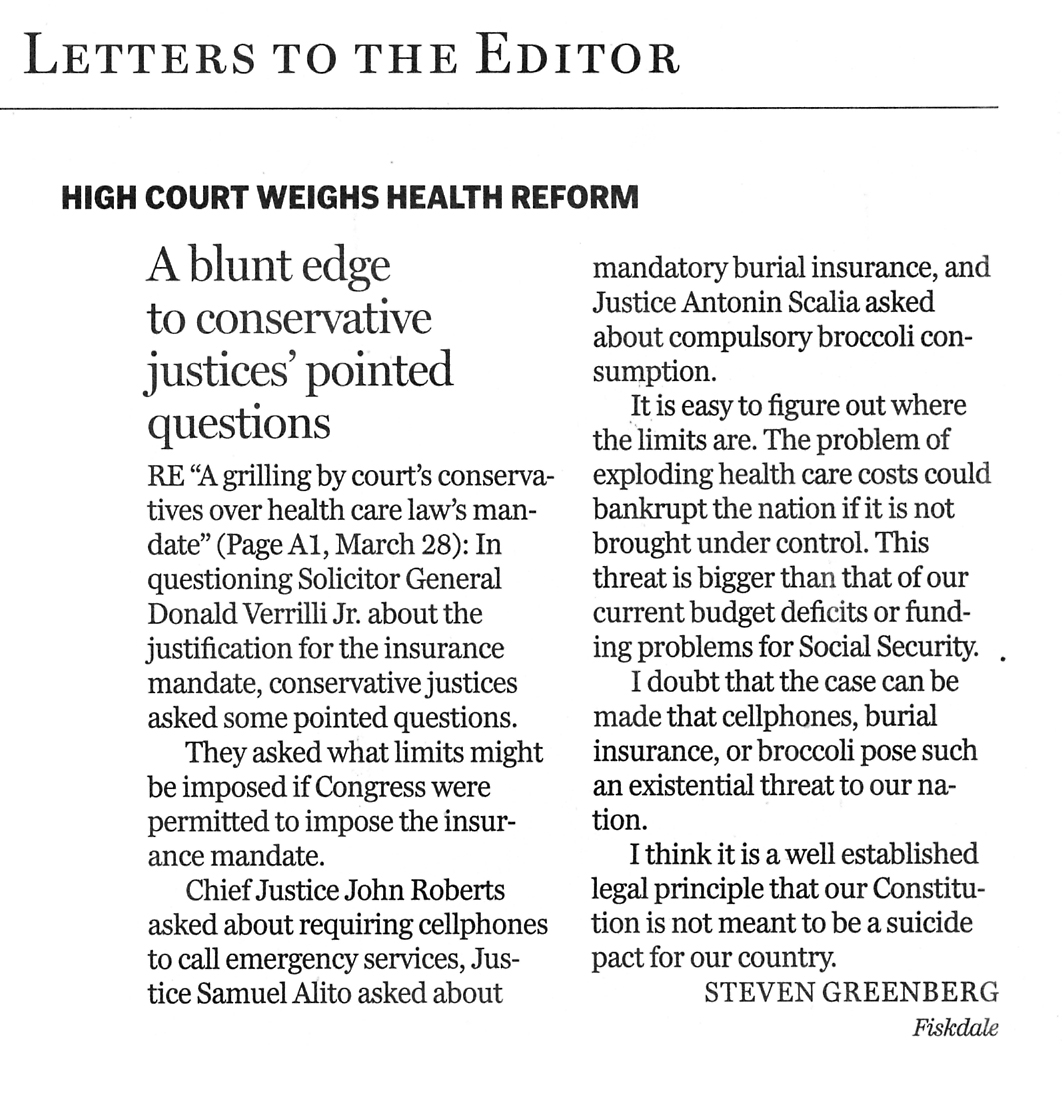McClatchy has the article On Day 2, Supreme Court health care arguments center on mandate.
Solicitor General Donald Verrilli Jr. presented the case for the Obama administration’s side.
Unconvinced, conservatives pressed Verrilli for what limits might be imposed if Congress were permitted to impose the insurance mandate. Roberts asked about requiring cellphones to call emergency services, Alito asked about mandatory burial insurance, and Scalia asked about compulsory broccoli consumption.
I must admit, that before reading this article, I did wonder the how insurance mandate could be justified under the Constitution in the face of arguments like this.
Verrilli stressed throughout his hour at the lectern that the 40 million uninsured Americans posed what he called “an economic problem” that Congress is empowered to fix.
I then realized that the obvious answer to the conservative judges’ questions is that unlike the health care issue, a cellphone mandate, a burial insurance mandate, or a broccoli mandate would not be an effort to try to solve a national emergency situation that is on track to bankrupt the country if it is not solved.
I looked up the topic of The Constitution is not a suicide pact on WikiPedia.
“The Constitution is not a suicide pact” is a phrase in American political and legal discourse. The phrase expresses the belief that constitutional restrictions on governmental power must be balanced against the need for survival of the state and its people. It is most often attributed to Abraham Lincoln, as a response to charges that he was violating the United States Constitution by suspending habeas corpus during the American Civil War. Although the phrase echoes statements made by Lincoln, and although versions of the sentiment have been advanced at various times in American history, the precise phrase “suicide pact” was first used by Justice Robert H. Jackson in his dissenting opinion in Terminiello v. Chicago, a 1949 free speech case decided by the U.S. Supreme Court. The phrase also appears in the same context in Kennedy v. Mendoza-Martinez, a 1963 U.S. Supreme Court decision written by Justice Arthur Goldberg.
In the face of certain bankruptcy of the Federal Government and the country, surely the Congress is empowered to enact reasonable measures to save the country. I doubt that the framers of the Constitution imagined that the document should be construed as restricting the government from reacting to an existential threat to the country.
Here is my letter to the editor of The Boston Globe that was published on March 29, 2012.
For those with access to The Boston Globe here is the link to my letter to the editor.
In case my letter left any doubts, here is a picture that explains my idea of where the threat of exploding health care costs sits in relation to the boundary of permissible federal regulation without explicit enumeration in the constitution,

